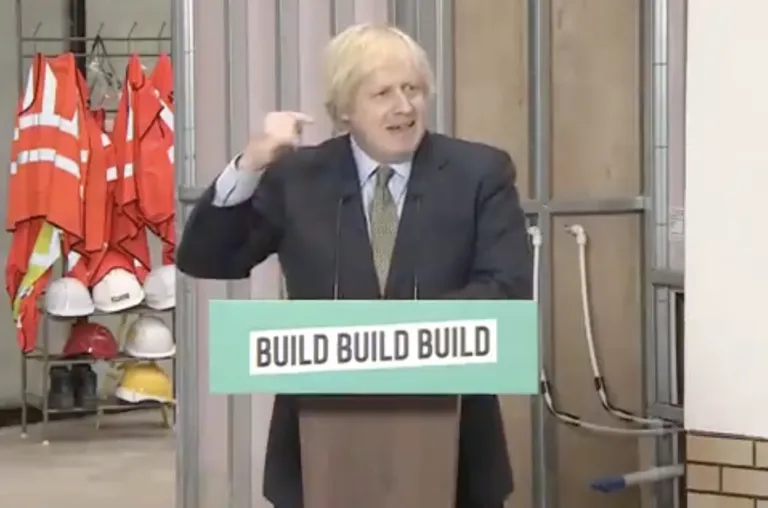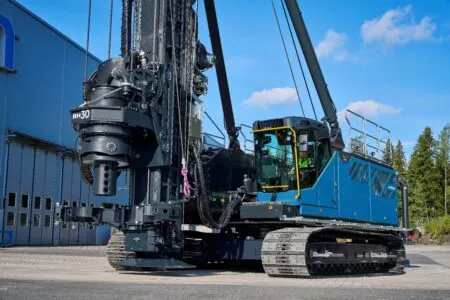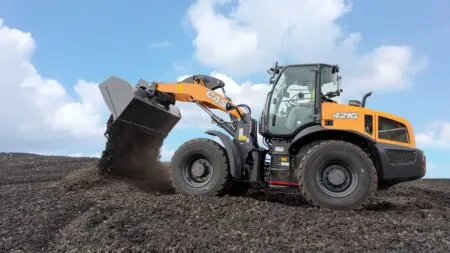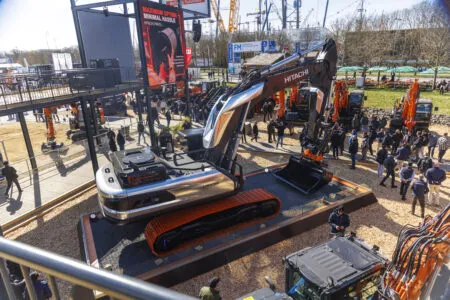The UK prime minister Boris Johnson has underlined the importance of the construction industry to fuel economic recovery, with a promise to, ‘build, build, build’.
In a speech this morning he likening his government’s plan to US president Franklin D Roosevelt’s New Deal programme which used public works construction to get America over the great depression of the 1920s, and cited his commitment to infrastructure creation. He revealed that £5bn of capital investment projects will be being brought forward in England, including £100m this year for 29 projects in the road network.
“This is a government that is wholly committed not just to defeating coronavirus but to using this crisis finally to tackle this country’s great unresolved challenges of the last three decades,” he said. “To that end we will build, build, build. Build back better, build back greener, build back faster and to do that at the pace that this moment requires.”
This comes on the back of planning permission deadlines being extended to save hundreds of construction projects from delays. Longer hours are being allowed on work sites to help with social distancing – and planning appeals could be speeded up. In addition, HS2 has begun recruiting for hundreds of jobs as major construction work on the £100bn railway edges closer. The government is hoping schemes like HS2 will lead the country out of the economic woe caused by Covid-19.
“Priming the construction sector will help avoid unnecessary redundancies and provide us with better roads, school and hospital buildings and more,” he said. “The real prize is if this leads to the adoption of the newest technologies so that we do indeed ‘build back better’. CEA members have a great part to play in this with the new generation of environmentally friendly machines with their revolutionary digital systems that ensure that they are operated in the most efficient and productive way.”
Speaking from the West Midlands, he cited local town Dudley as being the location for the world’s first electric racing car. “Today the West Midlands is a global centre for battery technology,” he said, before emphasising the importance of green project and use of the latest technology.
When it is published in the autumn, the revised National Infrastructure Strategy is expected to set a clear direction on core economic infrastructure, including energy networks, road and rail, flood defences and waste.





